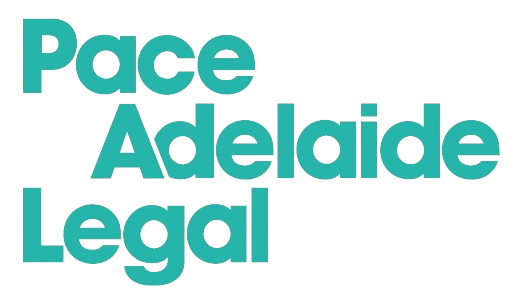Ask a question about Unfair Preference Claims
Get in touch with us if you have any questions.
What is an unfair preference?
‘Unfair preference’ is a legal term used in insolvency law. It arises when a company or person pays a debt to a creditor shortly before going into liquidation (if a company) or bankruptcy (if a person).
A creditor is deemed to have received an unfair preference payment from a company if:
- the payment is paid shortly before the company making the payment goes into bankruptcy
- the creditor suspects the company is trading insolvent
- and they receive payment for some or all of their debt ahead of other creditors.
To be an unfair preference, the payment must put the creditor it in a more favourable position than other unsecured creditors.

What will the liquidator do?
What happens if a payment is considered to be preferential by the liquidator?
If a company is considered to have been paid in preference to other creditors the liquidator will issue an unfair preference recovery letter and then possibly, a claim against that creditor to recover the amounts it received from the company.
Not all payments from the company to a creditor in the 6 months before liquidation are unfair preferences. Various thresholds must be met to make a payment a “preference” payment and then also, the Corporations Act provides various defences to an unfair preference claim.
The liquidator will generally send you a recovery letter outlining why they consider that your business has received an ‘unfair preference’ over other creditors and ask that you repay the amounts you have received that can be classified as an ‘unfair preference’.
Before you repay any money…….
If you receive an unfair preference recovery letter or claim from a liquidator, you should seek independent legal advice on the merits of the liquidator’s claim before repaying any money.
“We engaged Pace Lawyers to help defend our commercial position on a couple of tricky issues. Serina and her team were exceptional in their conduct and as a result both issues were resolved without heartache and to our complete satisfaction. I would highly recommend Pace Lawyers for work in this field, I’ve known Serina for a long time and can endorse her character and approach to business.”
Jeremy, Brownhill Engineering
What should you do if a liquidator makes an unfair preference claim against you?
Call a specialist lawyer as soon as possible so that you receive advice about the risks you face and, more importantly, the risks you do not face.
If you are at more risk due to the facts of your case, a specialist lawyer can also help you reach a better deal with a liquidator.
If you need assistance responding to or defending an unfair preference claim made by a liquidator, please do not hesitate to contact Shavin Silva at Pace Lawyers or call him on 08 8410 9294.
How Can Pace Lawyers Help?
Expertise
Pace Lawyers have an experienced commercial law team.
For over 21 years, we have provided advice and representation on all manner of insolvency issues. These include liquidator and trustee recoveries such as unfair preference recoveries and defences thereof.
Expediency
In particular, we are skilled at successful resolution of claims before court proceedings ensue.
No-Nonsense
The Pace Lawyers team believe in efficient cost-effective outcomes. We will give you a balanced view of your matter and advise on the best financial outcome for you, not us.

Are unfair preference claims common?
Unfair preference claims are a common occurrence when a company is wound up and liquidators are appointed to administer its affairs.
The liquidator will review how long the company has been insolvent, prior to being wound up, and as part of that process, the liquidator will review all payments made by the company to creditors during this “relation back” period (generally 6 months from the date a winding up order is made).
What Action Will our Legal team take?
Check the letter for accuracy:
In particular, make sure that:
- the dates that the liquidator has set out as the dates that payments have been made to your business are accurate. There are strict time limits governing the recovery of unfair preferences (the payments that can be attacked are payments made within 6 months of the ‘relation-back day’*); and
- the amounts claimed are accurate.
Identify whether the elements of an unfair preference have been met:
(as found in s 588FA of the Corporations Act 2001)
This includes whether:
- the liquidator has correctly identified your business;
- there was a ‘transaction’** between the debtor company and your business;
- you have actually received more than you would have if you proved for the debt in a winding up of the company.
This is usually straightforward, but it is important to confirm because the documentation the liquidator has may not reflect the totality of the situation.
Identify whether the company was actually insolvent at the time the payment was made.
This is usually a straightforward ‘yes’.
Identify whether you can rely on your terms of trade to argue that the debt is ‘secured’ and whether you can claim on that security.
This is something that should be argued in conjunction with your defences and will need special care in your handling of it depending on the particular situation.
Examine whether you can rely on some common defences:
- The ‘Good Faith’ Defence which has the following three elements and operates as a full defence against paying back monies that would otherwise be an unfair preference:
- You received the payments in good faith;
- there were no reasonable grounds for you suspecting that the company was insolvent at that time payments were made; and
- a reasonable person in your circumstances would have had no such grounds for so suspecting.
Set-off:
Do you and the debtor company have ‘mutual dealings’ such that the debtor company owes you monies that can be ‘set-off’ against a preference claim made by the liquidator? If so, and providing that you did not have notice of the fact that the company was insolvent at the time you gave credit to the company, or at the time you received credit from the company this could be effectively used to argue against payment of the claim (depending on the amount of set-off).
Conclusion
In Jeremy’s case, the liquidator of a company made a claim against Jeremy’s business for approximately $800,000.00 even though Jeremy’s business had already constructed and delivered a significant asset to that company. This claim made by the liquidator was fully defended and the matter was not even filed in Court.
*a liquidator will usually set out what the relation-back day is in their first letter. While this can usually be relied upon, it may be a point of contention that you should seek advice on.
** this is usually a payment made
*** this is a simplified version of the actual test
The topic of unfair preferences is a broad one with extensive case law going in-depth into the relevant sections of the Corporations Act 2001. The article provides a very brief overview of the topic with simple examples and is not a substitute for specialist legal advice.
Be in touch
If you are interested in working together, send us an enquiry and we
will get back to you as soon as we can.






